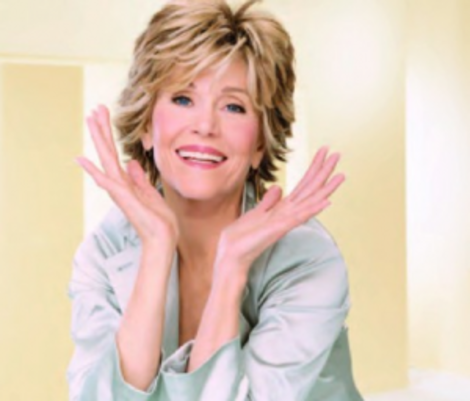Rachel Weisz Cosmetics Ad Banned in U.K. Do You Think It's 'misleading'?
Actress
Rachel Weiszisn't as perfect as she seems. That's the consensus behind Britain's Advertising Standards Authority, after itbanned a cosmetics adfeaturing Weisz this week.
The black and white, print campaign for L'Oreal's Revitalift Repair 10 anti-wrinkle cream features an alabaster-skinned image of the actress in close-up, along with the promise of a product that "targets 10 signs of aging in one."According to Britain's media watchdogs, Weisz' appearance wasenhancednot simply by the cream, but bypost-production techniquesthat crossed a very thin line of advertising standards.
See more beauty ads under fire for retouching.
The two-page spread, which ran in September issues of U.K.-based magazines, was first challenged by Jo Swinson, a member of parliament who has previously challenged other cosmetic firms' advertising practices.
L'Oreal complied with an investigation by the ASA, providing images and information on request. Off the bat, they admitted that certain the lighting techniques were used by the photographer to make the shots more flattering. They also noted the choice of a black and white photograph, which is often more forgiving than color, had been approved in the past by the ASA.
But Weisz' ad was ultimately deemed irresponsible by Britain's ad standards. "We considered that the image had been altered in a way that substantially changed her complexion to make it appear smoother and more even," reads the ASA report . "We therefore concluded that the image in the ad therefore misleadingly exaggerated the performance of the product in relation to the claims 'skin looks smoother' and 'complexion looks more even'."
The result: a ban on the ad, in its current form, all across the U.K.
L'Oreal executives were "disappointed" with the ruling and didn't agree with it. "We believe that the image in the advertisement is a true representation of Rachel Weisz," a representative for L'Oreal's wrote in an emailed statement to Yahoo! Shine. "The product claims are based on extensive scientific research which proved that the product improves ten different signs of skin ageing. We therefore do not believe that the ad exaggerates the effect that can be achieved using this product. "
The company didn't comment on plans to alter the ad and resubmit it. At least they don't have to worry about backlash here in the States. Weisz isn't a spokesperson for the company outside of the U.K. If she were, L'Oreal might have to contend with American advertising watchdogs too.
Read more about Rachel Weisz' career and upcoming projects, here.
In recent months, U.S. whistleblowers have followed Britain's charge and cracked down on cosmetic ads with retouched photos. ACoverGirl print ad featuringTaylor Swift was voluntarily removed from magazines by the company, after the National Advertising Division claimed Swift's image was retouched.
In the U.K., the war on beauty advertising has been waged for over two years now. The biggest blitz came whentwo L'Oreal adsfeaturing Julia Roberts and Christy Turlington were banned over air-brushing claims.

This week another ad by L'Oreal featuring Jane Fonda was also under investigation after six magazine readers complained about misrepresentation. But the ASA didn't find enough modification to consider Fonda's skincare ad misleading.
Still, the line between what the consumer is expected to understand and what she could falsely believe is as thin as floss. According to the ASA, "consumers expect a degree of glamour" from their beauty ads and that's okay. Even a little lighting and post-production enhancement is acceptable. But when products promise way more than they can deliver, advertisers need to be reigned in.
So what exactly is being promised in a beauty ad featuring a celebrity? Is there a suggestion of a fame-worthy outcome, or of financial and romantic success? If we use Revitalift, will we all end up married to James Bond, like the luminescent Weisz? Of course not. Will we, at least, have her skin? Not likely. But do we really expect to?
For better or worse, we don't look to ads for quality control. That's what beauty blogs and consumer reviews are for. As cosmetics companies come increasingly under the microscope that could change. A jar of cream, its functioning ingredients, and a few lab test statistics may not make the most eye-catching ad, but is it a better way to sell a beauty product?
Related:
Britney's retouched Candies' ad
Perfume: outlawed in New Hampshire
Why is Taylor Swift banned? CoverGirl controversy heats up
Roberts, Turlington banned in the U.K.
